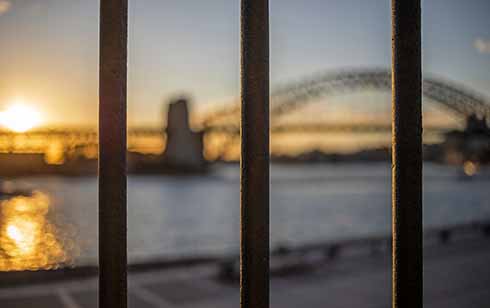 When we take away asylum seekers’ ability to work in the community, we not only leave them unable to support themselves – we also deprive them of a dignified life.
When we take away asylum seekers’ ability to work in the community, we not only leave them unable to support themselves – we also deprive them of a dignified life.
During COVID-19, many returning Australian nationals were forced into 14-day hotel quarantine. Deprived of the ability to move outside the confines of their small hotel room, many struggled.
Yet for people who have, over the past two decades, sought asylum in Australia, the term of their confinement (otherwise known as detention) – whether here in Australia or offshore – could be counted in years rather than days or weeks.
Sr Brigid Arthur, co-founder of the Brigidine Asylum Seeker Project (BASP), believes that locking up those seeking asylum in detention ‘deprives people of the chance to contribute to the society to which they long to be a part. It replaces meaningful activities with daily humiliation and indignities’.
She also says that even when they are released into the community, most asylum seekers can be left years waiting for a determination of their case. Most have no access to any income support, and at certain stages many have no right to work.
‘How can asylum seekers with no assistance be expected to survive?’, she asks.
WHAT HAPPENS WHEN REFUGEES CAN'T WORK
Brigid says BASP never intended to provide as much assistance with housing and rents as it does, but it simply had to. How else could asylum seekers in their local area maintain a roof over their head? (BASP is thankful for the critical support it receives from school groups, parishes, social justice groups and concerned individuals so it can provide vital services.)
Recently, a BASP innovative program came to media attention, one in which (due to COVID-19) asylum seekers were able to fill the labour shortages on farms in Victoria.
Koala Cherries in Yarck took on six workers who were asylum seekers. BASP collaborated with Regional Australians for Refugees (RAR), which was able to provide accommodation and bikes for the men to get to work each day for the seasonal work.
The program was a success, not only for the company, but for the program participants. And it has expanded. It’s an example of what can be achieved when the community rallies.
Brigid reflects. ‘The difference work makes to people seeking asylum is amazing. They go from having nothing to get up for, to earning money, contributing to the community, and feeling good about themselves.’
Brigid points out that having asylum seekers in the community would not only be more humane and cause far less suffering, it would also be so much cheaper for the government than having people in unnecessary detention. After all, they are not criminals. It is not crime to seek asylum.
A volunteer lawyer who assists asylum seekers with their cases, explains that under the current system, homelessness for asylum seekers is a major issue. Some applicants have been offered little more than a sleeping bag while waiting for their case to be heard. And that could take years.
‘What does this say about our humanity and how we deprive people of their human dignity?’ he asks.
THINKING OF A NEW WAY
On 25 February 2021, Jana Favero, Director of Advocacy and Campaigns at the Asylum Seeker Resource Centre (ASRC), stood outside Parliament House, alongside two men, Ramsi and Thanush.
‘Five to six weeks previously, they had been locked up for eight years, and they were completely motivated to do whatever they could to advocate for the release of everyone from detention. You could see how personally impacted the MPs were. This wasn’t just a concept. It was the human face of government policy. And it was powerful’, says Jana.
Together, Jana, Ramsi and Thanush presented a Time-for-a-Home petition to Parliament. Signed by 37,000 people, from all over the country, it called for the release of all refugees and asylum seekers in detention, and for them to be safely resettled by World Refugee Day on 20 June 2021.
Supported by 140 organisations, the petition achieved support across political parties. Jana, like many others, is hoping the change in government policy that’s so desperately needed will happen.
Jana believes we are all called to take action. ‘It’s our obligation to speak up on behalf of people who can’t.’ A significant number of people seeking asylum are still forced to rely on charities like Vinnies, BASP and the ASRC to survive.
‘We’re often dealing with despair and a lack of hope,’ says Brigid Arthur.
‘I think the governments over the last 20 years have been more guided by political opportunism than by any recognition of the rights of people to seek refuge… The immigration system needs reimagining. We need to think outside the system.’
> For more about the Brigidine Asylum Seekers Project go to basp.org.au.
Image: Getty Images